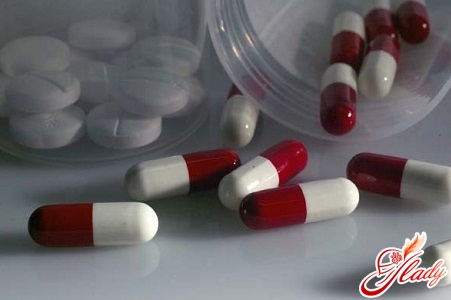 We know from school who donors are.A donor is a person who gives his blood voluntarily. But is it really so? Let's not lie. Even nowadays, there is selfless donation, when close people or relatives of a patient who needs a blood transfusion donate blood. But mostly, people become donors for money. Nowadays, not many people want to be donors, so the state has to stimulate such a field of medicine as donation by paying for the services of a donor. If you think that there is only one option for donating blood, then you are deeply mistaken. Blood collection is the simplest option. During this simple procedure, 400 ml of blood is simply taken from the donor. According to Russian law, whole blood can be donated no more than once every 60 days, so men can donate blood no more than 5 times a year, and women - 4 times a year. A more complex option is donor thrombocytapheresis. This is when the blood taken from the donor is filtered, separating the platelets, and the remaining blood components are returned to the donor. The next option is donor
We know from school who donors are.A donor is a person who gives his blood voluntarily. But is it really so? Let's not lie. Even nowadays, there is selfless donation, when close people or relatives of a patient who needs a blood transfusion donate blood. But mostly, people become donors for money. Nowadays, not many people want to be donors, so the state has to stimulate such a field of medicine as donation by paying for the services of a donor. If you think that there is only one option for donating blood, then you are deeply mistaken. Blood collection is the simplest option. During this simple procedure, 400 ml of blood is simply taken from the donor. According to Russian law, whole blood can be donated no more than once every 60 days, so men can donate blood no more than 5 times a year, and women - 4 times a year. A more complex option is donor thrombocytapheresis. This is when the blood taken from the donor is filtered, separating the platelets, and the remaining blood components are returned to the donor. The next option is donor.This is when plasma is extracted from the blood, and the remaining particles are returned to the donor. After donating plasma, whole blood may be collected no earlier than 36 days later. And as they say, the "perishable" option is donating granulocytes (derivatives of leukocytes). Due to the fact that their shelf life of this component is only 24 hours, this procedure is carried out as needed. Repeated donation of plasma or other blood components is allowed no earlier than 2 weeks later. According to the Law "On the Donation of Blood and Its Components", any adult citizen can become a donor. But before becoming a donor, you must undergo a medical examination, as there are some restrictions. A person who is sick or has suffered from such diseases as tuberculosis, AIDS, hepatitis cannot become a donor. You may also be refused if: you weigh less than 50 kg, you have low blood pressure, you had a sleepless night before donating blood, drank alcohol the day before the procedure, had a hearty dinner (it is not recommended to eat fatty, fried, smoked, spicy food). There are additional prohibitions for female donors: you cannot donate blood during menstruation and 5 days after its end, during pregnancy, breastfeeding, and also not earlier than six months after an abortion. The blood collection procedure takes place in special blood transfusion centers. In order to find out where the collection center is located, you do not need to contact the information desk, but simply contact the clinic. If you still decide to become a donor, you only need to contact the blood collection center with your passport with registration in this area, undergo a free medical examination and take blood tests. If you donate blood for the first time, then your blood will definitely be quarantined in order to avoid diseases that occur with a quarantine period. The blood collection procedure is usually carried out in the morning, because the body recovers better in the morning, and there is time to store the blood. After the procedure, you need to sit in the hallway and preferably eat a sandwich. Then you need to take two certificates to provide to your place of work to receive 2 days off and to the attending physician of the patient for whom you donated blood. If you donated blood for money, you will receive a certificate for receiving money. You will also be given coupons for enhanced nutrition, where to buy them will tell you at the center. And remember, donation is hundreds of saved lives.

Making Money with Desserts: Success Stories
Evgeniya Polischuk (Fedutinova) instagram:@evgeniyafedutinovavk.com/janeshomebaking– It all started with baking for family and friends. Gradually, I started posting photos of my baked goods on Instagram – and orders started coming in. I made my first custom-made cake on October 13, 2014, and a little earlier I started making macaroons and cupcakes. You could say that the business “found me”, I am very […]

Soups are cold recipes with photos
Cold cucumber soup with yogurt and lemonsorbet from the chef of the restaurant La Taverna Alexander Zhurkin Photo: Getty Images Ingredients: Plain yoghurt – 125 g Cucumber – 150 g Lemon/lime sorbet – 50 g Cocktail shrimp – 24 g Fresh ginger juice – 1 g Lime juice – 5 g Fresh orange juice – 5 g Parsley – 1 g Pink pepper – 1 g Watercress – […]

barbeque kebab
Pork tenderloin in glaze Photo:Dmitry Bayrak/dbstudioPreparation time: 20 minutes + marinating time.Calories: 454 kcal per serving.For 4 servings: 4 pork tenderloins (approximately 300 g each), 1 onion, 2 cloves of garlic, 1 tsp. lemon zest, 1 tsp. lemon juice, a pinch of ground cumin, coriander and turmeric, 1 tbsp. vegetable […]

Pierre Duacan: dietary recipes: Ducane diet
Beetroot soup Photo:Season’S, Luxury Hotels RepresentationYou will need:· Boiled beetroot – 60 g· Fresh cucumbers – 20 g· Red radish – 20 g· Green onions – 10 g· Egg – 1 pc.· Drinking mineral water – 200 g· Salt – 1 gPreparation:· Boil the egg and beetroot.· Grate the cucumbers, radish and part of the beetroot. Put everything […]





